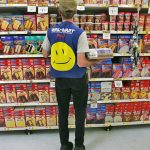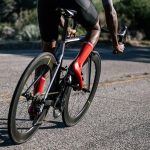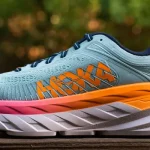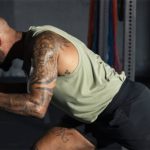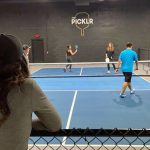The National Hockey League and the National Hockey League Players' Association last week reached an agreement to settle the 300+ day lockout imposed by NHL owners nearly 10 months ago. The question on the mind of many in the sporting goods industry now is: Will anyone notice or care? The answer will most likely depend on where you live or do business.
The tentative deal announced last week, which must still be ratified by the NHLPA, is a clear win for owners, many of whom ended up losing less money by not having a 2004-05 season. The deal will reportedly create a $39 million hard salary cap per team, about $3.5 million less than the cap owners offered last February. The players were insisting on no cap in salaries. The one upside for players is that each team will also have a $21 million floor on salaries, a minimum was not part of the leagues earlier offer.
One element of the deal that has gotten little press may just be the biggest opportunity for sporting goods industry retailers and The Hockey Company, the Reebok division that has a 10-year exclusive deal for NHL jerseys.
By 2008, the new agreement will allow for unrestricted free agency at age 27 or seven year tenure in the league, four years earlier than the previous rules. Free agency movement has been a huge upside for the NFL business each year as players make their annual move for more money, sparking new demand for fresh names and numbers on the local teams. The new NHL rules should have an impact on jersey sales each year as younger players start to move around more frequently. And with only about 300 players under contract with the 30 teams, we should see a mad scramble for players for the coming season as well.
While this one element will provide some benefit for the industry, Sports Executive Weekly wonders if the damage is already done, particularly in the U.S. where we have seen such a heavy proliferation of teams in the southern part of the country. The quick return of the fans in Canada and in traditional U.S. hockey strongholds like Detroit and Boston is probably a given, but SEW wouldnt start lining the walls just yet with Hurricanes, Lightning, Stars, and Thrashers jerseys.
The health of the professional game will probably depend on the elimination of more than a few clubs south of the Mason-Dixon line, where, quite frankly, there shouldnt be NHL teams anyway. Here in Charlotte, you are far more likely to find Rangers, Pens, and Flyers fans than any for the Hurricanes.
Still, the return of the game will give a boost to more than a few retailers in the northern tier and should be a godsend to our friends to the north. Forzani took a major hit in their apparel business over the last year and will certainly see some upside there. With the future of the NHL in question, Canadas largest sporting goods retailer started to make changes to their store mix and merchandising that have already stared to pay dividends. A focus on more performance footwear and outerwear is a large part of the revitalization effort at their stores. The return of the licensed business will be an added benefit to a business that is already starting to trend in the right direction.
Bill Gregson, COO of Forzanis corporate retail operations, recently told analysts that licensed sales fell 39.5% for the 2005 fiscal first quarter and plunged 58% in the first four months of the fiscal year, leading to a 2.5% decline in total comp store sales for the period. FGL is already ahead of the game on the hardgoods side, which did not see nearly as much impact from the lockout. Kids in Canada are still playing hockey and Forzani expected to feed that need by adding 60 skus to their hockey assortment for fall to expand their appeal as a hockey store. The in-line skate business was said to be down 31% for the YTD period, resulting in a CN$1.5 million margin hit.
Reebok should see some lift in their NHL licensed apparel business, but the impact is not expected to move the needle as much as other factors in their business. Susquehanna Financial chief analyst John Shanley released a tough report last week downgrading RBK to “Neutral” from “Positive” citing declining demand for the value Classics that make up a large chunk of Reeboks U.S. sales. He said the athletic specialty retail sector was shifting dollars from Reebok to more Nike product and “fashion classic footwear” from K-Swiss and Converse. He did not release a revised outlook based on the NHL settlement.
The Hockey Company, which Reebok acquired in April 2004 for $204 million and the assumption of another $125 million in debt, has been fully integrated in the Reebok business, with Matt OToole, CEO of The Hockey Company, taking over management of all Reebok operations in Canada.
The THC business only generated $24 million in the 2005 first quarter and was about five cents dilutive to RBKs bottom line. As a stand-alone company in Q1 last year, THC generated a $4.4 million loss on $42.6 million in sales. The inclusion of THC accounted for less than 1.0% of the increase in U.S. Reebok Brand footwear sales for the period.
Based on the most recent SportScanINFO data, Reebok (and THC) has a 45% share in NHL licensed product for the year-to-date period, a 20% share in hockey equipment, and 50% share in ice skates. Total U.S. sales of hockey equipment for all brands, excluding skates, are down 30% for the YTD period, and were down 19% in 2004 vs. 2003. Sales of ice skates are down 20% YTD and were down 25% in 2004 versus 2003.
The NHL jersey business in the U.S. is also just a footnote on the total replica business, kind of like the baseball business in Canada. According to SSI, NHL jerseys were just 2% of total jersey sales in 2004, down from 5% in 2003 and 8% in 2002. Based on the same data, sales of NHL jerseys were down 50% in 2004 vs. 2003, a number that had already declined 20% from the year before when there was no lockout.
The upside for Reebok here is yet more exposure for the Rbk brand, which will now be on all NHL jerseys instead of the CCM logo, according to sources close to the company. Reebok has already started promoting the change, creating a multi-faceted Rbk Hockey marketing campaign that launched in March. The campaign, entitled “The Switch is On,” featured Rbk Hockeys new endorsees, which includes a half dozen NHL players, including Evgeni Malkin, the #2 overall pick in the 2004 NHL draft.
Reebok has also inked a multi-year deal with Sidney Crosby, the 17 year-old hockey phenom and consensus top pick in the next NHL draft. He is described by the company as potentially the best player to enter the pro ranks in 20 years.
SEW wonders how the name change will play north of the border, but sees little downside to the move in the states.
The company said the Rbk Hockey line features skates, sticks, and protective equipment sporting new, proprietary technologies and materials never before used in hockey equipment.
“The products target the expressive, new school hockey player who pushes the limits of speed, agility, and creativity on the ice,” said Matt OToole, president and CEO of The Hockey Company in a release.
The NHL getting back to business is also expected to spark more interest in the dueling hockey shows which are scheduled to take place at the same time in opposite ends of the U.S. in January 2006.
Cliff Gabel, president of the Canadian Sporting Goods Association, which is a partner in the Hockey Show in Boston, told SEW that the return of the NHL is certainly a positive for the industry and the Hockey Show. He expected that people will come with more enthusiasm. Within 24 hours of the tentative deal being announced, Gabel said he was already getting a sense that the sporting goods industry, particularly in Canada, was encouraged and energized by the new agreement.
>>> It looks like the key retailers and vendors have already put the pieces in place to take advantage of the opportunity when the puck drops. We now have to see if the league can put its house in order to get the fans back to the game…
>>> For starts, how bout CSGA and Reebok put pressure on the NHL to make sure that theres a Bruins game or two in Boston during the Hockey Show. Perhaps a section free of charge for all the retailers that took a puck to the shorts over the last year


